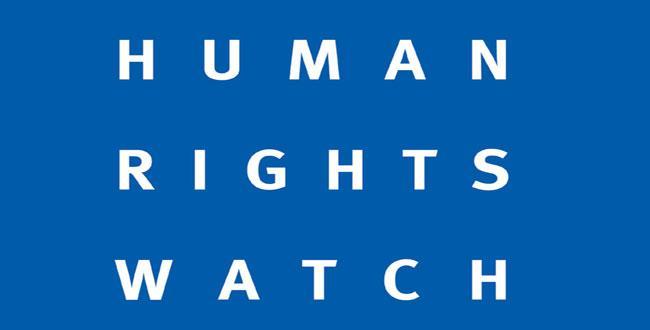KABUL government should prosecute officials and commanders whose serious human rights abuses have long gone unpunished, the Human Rights Watch (HRW) said in a report.
In a statement, the HRW said that US officials should press President Mohammad Ashraf Ghani to take up justice for past abuses as a top priority during Ghani’s expected March 2015 visit to Washington, DC.
“The previous Afghan government and the United States enabled powerful and abusive individuals and their forces to commit atrocities for too long without being held to account,” said Phelim Kine, HRW deputy Asia director. “The Ghani administration has already taken the welcome step of launching a national action plan to eliminate torture. The United States, which helped install numerous warlords and strongmen after the overthrow of the Taliban, should now lead an international effort to support the new government to remove serious human rights abusers from their ranks.”
The 96-page report, “‘Today We Shall All Die’: Afghanistan’s Strongmen and the Legacy of Impunity,” profiles eight “strongmen” linked to police, intelligence, and militia forces responsible for serious abuses in recent years.
The report documents emblematic incidents that reflect longstanding patterns of violence for which victims obtained no official redress. The impunity enjoyed by powerful figures raises serious concerns about Afghan government and international efforts to arm, train, vet, and hold accountable Afghan National Police units, National Directorate of Security officials, and Afghan Local Police forces.
The government of former president Hamid Karzai failed to bring these individuals and their forces to justice, fostering further abuses and fueling local grievances that have generated support for the Taliban and other anti-government forces, the HRW said.
Ghani has pledged to hold security forces accountable for their actions and end official tolerance for torture, but will need the full support of Afghanistan’s international supporters to carry out this politically sensitive task.
Officials and commanders whose forces have a history of abuses typically go unpunished, Human Rights Watch said. For instance, forces under the command of Hakim Shujoyi have killed dozens of civilians in Uruzgan province, yet despite a warrant for his arrest he remains at large and evidence suggests he has enjoyed the support of US forces.
In Paktika province, Afghan Local Police forces under the command of Azizullah, an ethnic Tajik who, as of June 2014, was a commander of the local ALP in Urgun district, have committed multiple kidnappings and killings. Azizullah has worked closely with US Special Forces despite their awareness of his reputation for unlawful brutality.
pr/rm








GET IN TOUCH
NEWSLETTER
SUGGEST A STORY
PAJHWOK MOBILE APP